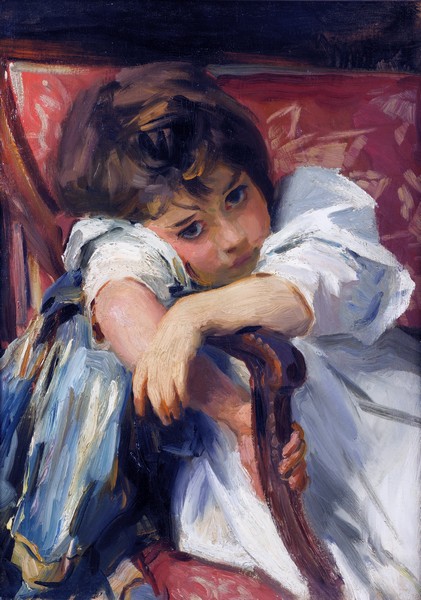
A few months ago, I told you of a talk about Winterreise at the Wagner Club Barcelona. Inés, a lady who attended that talk, wrote me to confirm something that I had commented back then: that one of the songs, Der Lindenbaum, had transcended the cycle and became a traditional song, a song that children used to sing when they went on an excursion. In fact, I hardly convinced once a German lady more fond of excursions than of Lied that Schubert didn't harmonize that song, but composed it. However, Inés had sung Der Lindenbaum as a child, in Barcelona. She studied at the Blessed Virgin Mary School, familiarly known as the “German nuns”. Mater Wilhelmine was the music teacher, and she was able to convey to her students, in addition to many songs, her love for music:
“I still remember Mater Wilhelmine, in a beautiful room in the old school building, with dark wood panelling the walls. The sun came through the window, and she was sitting with her back facing it, playing the piano with great enthusiasm. [...] I guess she used to choose that room also to join two arts, music and architecture, and to encourage the experience of beauty. Besides, it was large enough so as two classes could sing together there. I remember other classrooms, but none like this. [...] The great credit of Mater Wilhelmine, our music teacher, is that we still love music. It's not unusual to find alumni at concerts, or to talk about classical music at meetings, or to meet to attend an opera or a concert”
The poem is by almost unknown Christian Adolph Overbeck, a jurist and poet one year older than Mozart. Do you remember that I told you about a circle of poets that Schubert widely musicalized, the Göttinger Hainbund, and the magazine they published, the Göttinger Musenalmanach? Overbeck didn't belong to that circle, but felt close to it, and the poem was published in the almanac of 1776 under the title Fritzchen an den Mai [Little Fritz to May] A few years later, in 1781, Overbeck republished it with some changes in a collection called Fritzchens Lieder [Songs of the little Fritz], which, as the author explained, wasn't for children but for adults who would enjoy the way children understand life (I imagine that Little Fritz as the Calvin & Hobbes of the 18th century).
In the poem Fritzchen an den Mai, the child longs for spring and for playing outdoors. It's not that he can't play outdorrs in winter, he has his sled, and it's also fun playing inside the house, but, ah, spring! The child wants good weather to arrive; he imagines green trees and singing birds, and violets (that blooming February in Barcelona, the German winter is really long).
In January 1791 the child inside Mozart should also miss spring, because he wrote a Lied with Overbeck's poem which he called "Sehnsucht nach dem Frühling”. On the same day, the 14th, he wrote two other Lieder with a similar subject (Der Frühling and Kinderspiel). Sehnsucht nach dem Frühling is a delightful simple song, it seems written to please children. It's pure strophic, so if you know the music of a stanza, you know all of them; the tune is simple and catchy; at the accompaniment, the right hand doubles the vocal line, while the left is quite easy. No wonder that the song reached everyone so easily, and people even forgot Mozart has composed it; in a sense, this oblivion is one of the best things that can happen to a song. I would say that this week almost every reader knew previously the song, either in the original version or in any of the countless versions made later. Of course, we're listening to Mozart's song, performed by Josef Protschka and Helmut Deutsch.
Many of you would also relate the tune to another work by the composer, his last piano concerto, No. 27, which he composed a few days before the song and is placed immediately before in the catalogue. The main theme of the third movement, a rondo, is also the first theme of the song. And here Mozart plays with the tune at pleasure and lightens our hearts. That's why I'm also sharing this third movement, just in case you can dedicate ten more minutes to the article; the version is that of Friedrich Gulda, the Wiener Philharmoniker and conductor Claudio Abbado.
I would like to dedicate this article to Inés and her schoolmates, to Mater Wilhelmine and to all the teachers who convey love for their subject, whether it's music, history, language, or mathematics.
Komm, lieber Mai, und mache
Die Bäume wieder grün,
Und laß mir an dem Bache
Die kleinen Veilchen blühn!
Wie möcht ich doch so gerne
Ein Veilchen wieder sehn,
Ach, lieber Mai, wie gerne
Einmal spazieren gehn!
Zwar Wintertage haben
Wohl auch der Freuden viel;
Man kann im Schnee eins traben
Und treibt manch Abendspiel,
Baut Häuserchen von Karten,
Spielt Blindekuh und Pfand;
Auch gibt's wohl Schlittenfahrten
Auf's liebe freie Land.
Doch wenn die Vöglein singen
Und wir dann froh und flink
Auf grünen Rasen springen,
Das ist ein ander Ding!
Jetzt muß mein Steckenpferdchen
Dort in dem Winkel stehn;
Denn draußen in dem Gärtchen
Kann man vor Kot nicht gehn.
Am meisten aber dauert
Mich Lottchens Herzeleid;
Das arme Mädchen lauert
Recht auf die Blumenzeit;
Umsonst hol ich ihr Spielchen
Zum Zeitvertreib herbei,
Sie sitzt in ihrem Stühlchen
Wie's Hühnchen auf dem Ei.
Ach, wenn's doch erst gelinder
Und grüner draußen wär!
Komm, lieber Mai, wir Kinder,
Wir bitten dich gar sehr!
O komm und bring vor allen
Uns viele Veilchen mit,
Bring auch viel Nachtigallen
Und schöne Kuckucks mit!
Come, dear May, and make
the trees green again,
and by the brook, let
the little violets bloom for me!
How I would love
to see a violet again -
ah, dear May, how gladly
I would take a walk!
It is true that winter days have
much joy as well:
one can trot in the snow
and play many games in the evening;
build little houses of cards,
play blind-man's-buff and forfeits;
also go tobogganing
in the lovely open countryside.
But when the birds sing
and we joyously and quickly
jump and bounce on the green turf -
this is another thing!
Now my stick-horse must
stand in the corner there;
for outside in the garden
one cannot walk because of the dung.
Most of all,
Lottchen's sorrow weighs on me:
the poor girl waits so gloomily
for the flowers to bloom.
In vain I bring her games
to pass the time,
but she sits on her stool
like a little hen on an egg.
Ah, if only it would grow milder
and greener out there!
Come, dear may! we children,
we beg you!
O come and bring for us, before anyone else,
lots of violets!
Bring also lots of nightingales
and pretty cuckoos!
(translation by Emily Ezust)


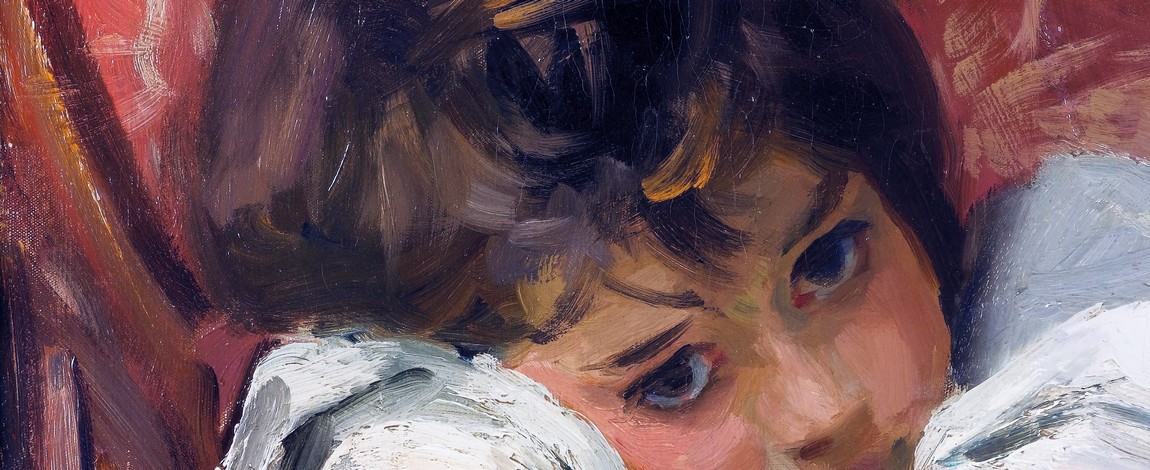
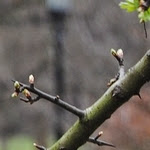
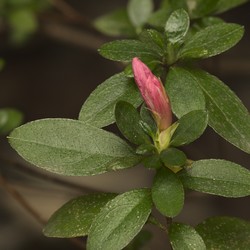
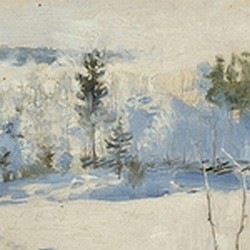 Next De...
Next De...









